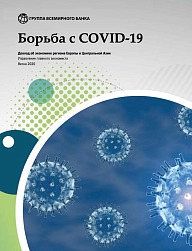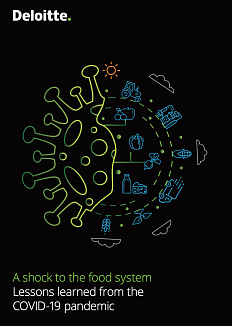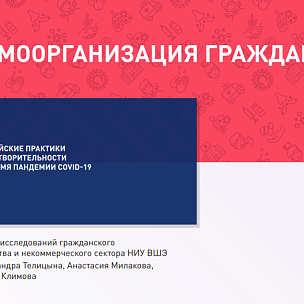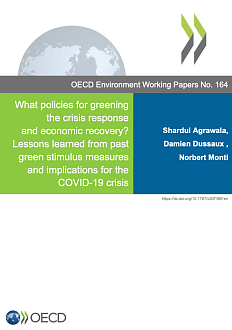The World Bank Europe and Central Asia Economic Update summarizes the recent developments and growth outlook for the region under different scenarios regarding the coronavirus pandemic. The work gives preliminary estimates of the impacts of the coronavirus pandemic and provides an analysis of policy responses.
The Roscongress Foundation presents the salient points of the publication accompanied by fragments of broadcasts of relevant panel discussions from the business programme of international events held by the Roscongress Foundation.
Growth in Europe and Central Asia is expected to fall into a recession in 2020 and rebound subsequently to roughly 5.6 to 6.1 percent in 2021.
In the baseline COVID-19 scenario, regional growth is projected to contract in 2020, to −2.8 percent. In the downside scenario, the recession is deeper, with growth shrinking −4.4 percent. The range reflects the uncertainty surrounding the impacts of the coronavirus pandemic, notably concerns about the duration of the pandemic and the extent of economic disruption it will generate.

Subsequently, regional growth will rebound to roughly 5.6 to 6.1 percent in 2021 as policy measures are introduced, global commodity prices gradually recover and trade strengthens. The outlook faces unprecedented downside risks related to the pandemic.
Although the magnitudes are uncertain, the pandemic is likely to derail the near-term outlook by interrupting daily activity, putting further downward pressure on commodity prices, disrupting tightly linked global and regional supply chains, reducing travel and tourist arrivals, and decreasing demand for exports from economies in the region.
Policy makers across the region face a difficult trade-off between the health benefits of social distancing and quarantine measures and the economic costs of these actions. They need to act quickly and decisively to save lives, while also introducing policies to cushion the economic downturn and ensure a V-shape recovery.
Growth in Russia is expected to contract in 2020, reflecting substantial growth headwinds, and firm moderately in 2021.
Growth in Russia is expected to contract in 2020, reflecting substantial growth headwinds due to the sharp fall in oil prices, triggered initially by the coronavirus outbreak and exacerbated in March by the abandonment of the OPEC+ oil production cuts.
The previously projected improvement later this year may prove unachievable if oil prices re-main below the level assumed by the fiscal rule ($42.40 per barrel in current Urals prices). The proposed increase in social spending, assuming the budget is executed, could partially offset the downward pressures on growth. The shortfall in government revenues from low oil prices is expected to be compensated by the National Wealth Fund, which is roughly 9 percent of gross domestic product (GDP). Still, a contracting economy in 2020 is inevitable, and the outcome could be far worse if containment measures are increased to confront a domestic outbreak.
National Projects, which are partly funded by the 2019 VAT hike and include a series of investments in infrastructure and human capital, are expected to buoy growth over the forecast horizon. Nevertheless, private investment remains tepid in the baseline outlook, due to policy uncertainty and slowing potential growth over the long term as demographic pressures increase and structural problems, such as the lack of competition, accumulate.
The immediate policy priorities in Europe and Central Asia are bolstering health care systems and providing support to the private sector to cushion the downturn and preserve jobs.
The immediate policy priorities in Europe and Central Asia are bolstering health care systems to save lives, strengthening safety nets to provide relief to households, and providing support to the private sector to cushion the downturn and preserve jobs. To the extent fiscal space is available, broad-based fiscal stimulus can also help lift aggregate demand, but it will probably be more effective after the immediate crisis has passed and business operations begin to normalize.
Monetary policy can also play an important role. Central banks should be ready to provide ample liquidity to banks and non-bank financial institutions, particularly to small and medium-size enterprises, which are prone to suffer more from the sharp disruption. Broader monetary stimulus, such as policy rate cuts or asset purchases, can lift confidence and support financial markets to offset the risk of a sizable tightening in financial conditions, given the volatility in markets. International coordination in monetary easing could further alleviate the volatility. As in the case of fiscal support, the availability of buffers and monetary space varies across countries in the region.
For more information about possible ways to stabilize the economy during the pandemic, please see the StayHomeEconomy special section of the Roscongress information and analytical system, and the Economic progress and Entrepreneurship sections about measures aimed at stimulating economic progress.





